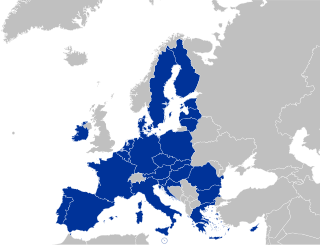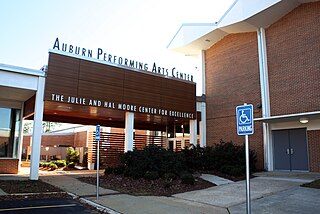A think tank or policy institute is a research institute/center and organization which performs research and advocacy concerning topics such as social policy, political strategy, economics, military, technology, and culture. Most policy institutes are non-profit organisations, which some countries such as the United States and Canada provide with tax exempt status. Other think tanks are funded by governments, advocacy groups, or corporations, and derive revenue from consulting or research work related to their projects.
Prospect is a monthly British general interest magazine, specialising in politics, economics and current affairs. Topics include British, European, and US politics, social issues, art, literature, cinema, science, the media, history, philosophy, and psychology. It features a mixture of lengthy analytic articles, first-person reportage, one-page columns, and shorter, quirky items.

Allied Command Transformation (ACT) is a military command of the North Atlantic Treaty Organization (NATO), formed in 2003 after restructuring.
Turkish think tanks are relatively new, but such think tanks provide research and ideas, yet they play less important roles in policy-making when compared with American think tanks. Many of them are sister organizations of a political party or a company. There are very few university think tanks.

The Joint Support Service is a branch of the German Bundeswehr established in October 2000 as a result of major reforms of the Bundeswehr. It handles various logistic and organisational tasks of the Bundeswehr. The SKB is the fifth component of the Bundeswehr, the other five being the Army, Navy, Air Force, the Joint Medical Service and Cyber and Information Domain Service (Germany). As of 31 December 2018, the force is composed of 27,640 personnel.
LEAP is a think tank established to analyze and anticipate global economic developments from a European perspective and to publish a paid-subscription monthly economic forecast bulletin. It was founded in 1997 under the title "Europe2020" by Marie-Helene Caillol and Franck Biancheri, the founder of the European student network AEGEE and one of the few pan-European parties, Newropeans and relaunched as LEAP in 2005. LEAP claims to be the first European website of anticipation, independent from any government or lobby.

The Central Institute of Classical Tamil (CICT) is a body established by the Government of India with a view to promoting the cause of Classical Tamil. It is located in Chennai.

The Defence Chemical, Biological, Radiological and Nuclear Centre is a United Kingdom military facility at Winterbourne Gunner in Wiltshire, south of Porton Down and about 4 miles (6 km) northeast of Salisbury. It is a tri-service location, with the Army being the lead service. The centre is responsible for all training issues relating to chemical, biological, radiological and nuclear (CBRN) defence and warfare for the UK's armed forces.

DCAF- ; Geneva Centre for Security Sector Governance; French: Centre pour la gouvernance du secteur de la sécurité, Genève, German: Das Genfer Zentrum für die Gouvernanz des Sicherheitssektors is an intergovernmental foundation-based think tank that provides research and project support to states and international actors in improving security sector governance and reform.

The European Council on Foreign Relations (ECFR) is a pan-European think tank with offices in seven European capitals. Launched in October 2007, it conducts research on European foreign and security policy and provides a meeting space for decision-makers, activists and influencers to share ideas. ECFR builds coalitions for change at the European level and promotes informed debate about Europe’s role in the world. ECFR has offices in Berlin, London, Madrid, Paris, Rome, Warsaw and Sofia.
The European Union (EU) Centre in Singapore is part of a global network of European Union Centres of Excellence. Following the launch of EU Centres of Excellence in the US and Canada in 1998, there are now 37 Centres located in Australia, Canada, Hong Kong, Japan, Macao, New Zealand, Russia, South Korea, Taiwan and the United States.
The International Centre for Policy Studies (ICPS) is an independent NGO, founded in 1994 which aims to promote public policy concepts and practice and apply them to influential policy research that affects both the public and private sectors in Ukraine.

The Permanent Structured Cooperation (PESCO) is the part of the European Union's (EU) security and defence policy (CSDP) in which 25 of the 28 national armed forces pursue structural integration. Based on Article 42.6 and Protocol 10 of the Treaty on European Union, introduced by the Treaty of Lisbon in 2009, PESCO was first initiated in 2017. The initial integration within the PESCO format is a number of projects planned to launch in 2018.

The Wilfried Martens Centre for European Studies is the 10th biggest think tank worldwide and the official think tank of the European People’s Party. Its mission is to offer decision makers and opinion leaders assistance in formulating new and effective policy options, as well as to put forward new ideas and provide a forum where they can be debated. The Centre’s goals are to have policy impact through concrete policy proposals, to shape European public opinion, and to be the key platform of cooperation for centre-right partners and experts. Currently, the president of the Martens Centre is former Slovak prime minister Mikuláš Dzurinda, who succeeded the centre’s founder Wilfried Martens in 2013.
The Centre for the Study of Existential Risk (CSER) is a research centre at the University of Cambridge, intended to study possible extinction-level threats posed by present or future technology. The co-founders of the centre are Huw Price, Lord Martin Rees and Jaan Tallinn.

The Centre of Excellence for Operations in Confined and Shallow Waters is an international military organization founded to support NATO's transformation program. As part of the NATO Centres of Excellence programme the COE CSW was established in April 2007 and officially accredited by NATO on 26 May 2009. It is co-located with the staff of the German Einsatzflottille 1 in Kiel whose commander is double-hatted as COE CSW Director.

The EU Centres of Excellence on Chemical, Biological, Radiological and Nuclear Risk Mitigation is an initiative of the European Union which was launched in 2010. The Initiative addresses the mitigation of and preparedness against risks related to CBRN material and agents. The origin of these risks can be criminal, accidental or natural. The CBRN CoE Initiative seeks to boost cooperation at national, regional and international levels, and to develop a common and coherent CBRN risk mitigation policy at national and regional level. Risk mitigation comprises prevention, preparedness and post-crisis management.

The European Centre of Excellence for Countering Hybrid Threats is an intergovernmental think tank based in Helsinki, Finland, focusing on responses to hybrid threats under the auspices of the European Union (EU) and NATO.
The Joint European Union Intelligence School (JEIS) is a project of the Permanent Structured Cooperation (PESCO) that was announced in November 2018. The project will be led by Cyprus and Greece. The school will provide education and training in intelligence disciplines, among other things, to EU member states intelligence personnel, and develop new hardware, including drones and electronic warfare technology.

The Latvian Institute of International Affairs is a think tank in Latvia. Founded on May 20, 1992, the organization seeks to provide “Latvia's decision-makers, experts, and the wider public with analysis, recommendations, and information about international developments, regional security issues, and foreign policy strategy and choices”. They achieve this by publishing original research, hosting conferences, and partnering with other institutions in these tasks. Their research focuses on important topics such as Latvian foreign policy; transatlantic relations; European Union policies, including its neighborhood policy and Eastern Partnership; and multilateral and bilateral relations with Russia. The LIIA is a nonprofit and does not receive regular government funding. Its funding primarily comes from its partners for individual projects. While the LIIA is a non-governmental organization, they do advise the Latvian Parliament, as well as other decision-making bodies within and outside of Latvia. The current director (2011) of LIIA is Andris Sprūds.












